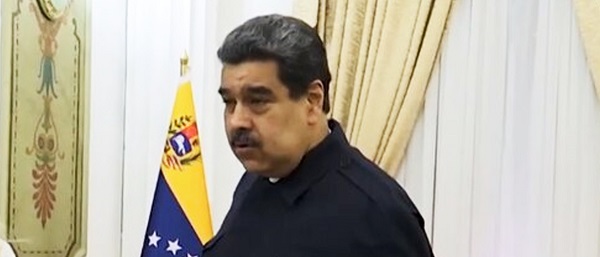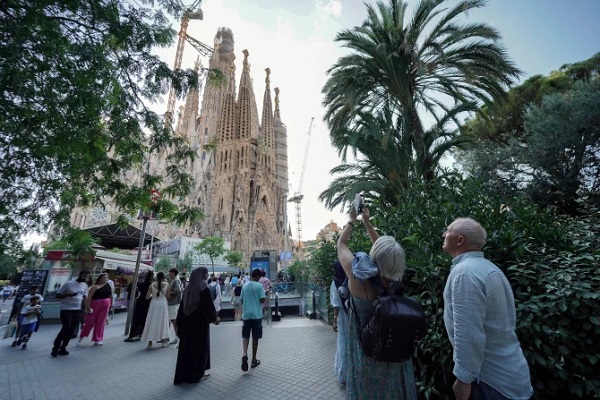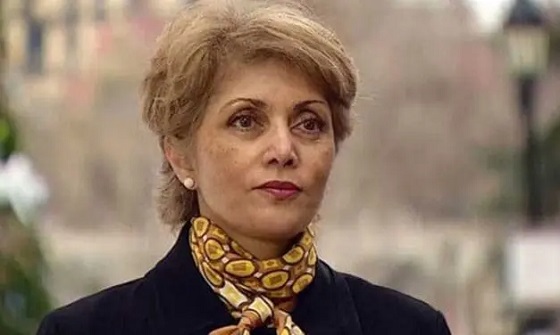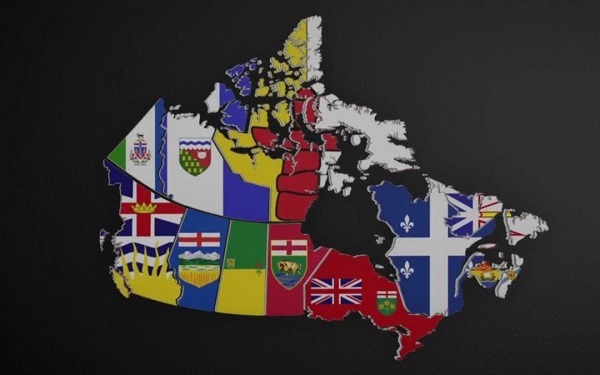Uncategorized
Saudi team after Post writer included soldiers, royal guards

ISTANBUL — Saudi royal guards, intelligence officers, soldiers and an autopsy expert were part of a 15-member team from the kingdom that targeted missing writer Jamal Khashoggi, Turkish media said Thursday. The Washington Post contributor vanished last week while visiting the Saudi Consulate in Istanbul.
The reported details, coupled with more-direct comments from Turkish President Recep Tayyip Erdogan, appear aimed at gradually pressuring Saudi Arabia to reveal what happened to Khashoggi, while also balancing Ankara’s need to maintain the kingdom’s investments in Turkey and relations on other issues.
In Washington, President Donald Trump expressed reservations over withholding American arm sales over the writer, even as prominent American lawmakers increasingly criticize Saudi Arabia — America’s longtime security ally in the region.
Turkish officials say they fear Saudi Arabia killed and dismembered Khashoggi, without offering evidence explaining why they believe that. Khashoggi contributed columns to the Post, including some critical of Crown Prince Mohammed bin Salman.
Saudi Arabia, before going silent in recent days, called the allegation it abducted or harmed Khashoggi “baseless.” However, it too has offered no evidence to support its claim the writer simply walked out of its consulate and vanished despite his fiancée waiting outside for him.
Information continues to trickle out through Turkish media about the 15-man Saudi team previously described as an “assassination squad.” These leaks, largely matching across Turkey’s state-run media and private Erdogan-linked outlets, likely come from the country’s security services as another means to pressure the kingdom over Khashoggi’s Oct. 2 disappearance.
The first plane of nine Saudis arrived from Riyadh around 3:30 a.m. that day, and included an individual described as a forensics official, according to the Sabah newspaper. One Turkish official, speaking on condition of anonymity to The Associated Press to discuss an ongoing police investigation, previously described that official as an “autopsy expert.”
The other six flew in on commercial flights, according to a list obtained by Sabah, which also published their names and faces. Local media described the Saudis being military and intelligence officers, as well as several “royal guards.”
Around the time Khashoggi entered the consulate, a second private plane from Riyadh took off for Istanbul. About two hours after he entered the consulate, video released by state media in Turkey shows several vehicles with diplomatic license plates, leave the consulate and drive some 2
The Hurriyet newspaper and other media alleged that the consulate’s 28 local staff were given the day off because a “diplomats’ meeting” would be held there. The reports did not cite a source and there was no official confirmation.
By 7 p.m., six of the Saudis left by the newly arrived private plane, flying onto Cairo and remaining overnight until heading back to Riyadh, according to Sabah and other media reports. By 11 p.m., another seven left by the other private plane, heading to Dubai, United Arab Emirates, similarly remaining there overnight and then flying on to Riyadh the next day, according to reports. Two others flew out commercially, Sabah said.
While the reports provide nothing definitive, they darken the picture surrounding Khashoggi’s disappearance.
Erdogan was quoted by Turkish media on Thursday as telling journalists flying with him back home from a visit to Hungary that “we cannot remain silent to such an incident.”
“How is it possible for a consulate, an embassy not to have security camera systems? Is it possible for the Saudi Arabian consulate where the incident occurred not to have camera systems?” Erdogan asked. “If a bird flew, if a mosquito appeared, these systems would catch them and (I believe) they (the Saudis) would have the most advanced of systems.”
Meanwhile, Trump told reporters in the Oval Office that he has a call in to Khashoggi’s fiancee, Hatice Cengiz, who has appealed to the president and first lady Melania Trump for help.
Trump said he had spoken with the Saudis about what he called a “bad situation,” but he did not disclose details of his conversations. He also said the U.S. was working “very closely” with Turkey, “and I think we’ll get to the bottom of it.”
White House press secretary Sarah Huckabee Sanders said national security adviser John Bolton and presidential senior adviser Jared Kushner spoke on Tuesday to Crown Prince Mohammed about Khashoggi.
Secretary of State Mike Pompeo then had a follow-up call with the crown prince to reiterate the U.S. request for information and a thorough, transparent investigation.
In an interview later Wednesday with “Fox News @ Night,” Trump said he wanted to find out what happened to Khashoggi but appeared reluctant to consider blocking arms sales, citing economic reasons.
“I think that would be hurting us,” Trump said. “We have jobs, we have a lot of things happening in this country. We have a country that’s doing probably better economically than it’s ever done before.”
“Part of that is what we’re doing with our
On his first international trip as president, Trump visited Saudi Arabia and announced $110 billion in proposed arms sales. The administration also relies on Saudi support for its Middle East agenda to counter Iranian influence, fight extremism and support an expected peace plan between Israel and the Palestinians.
Khashoggi had gone to the consulate on Tuesday last week to get paperwork he needed for his upcoming marriage. His Turkish fiancee waited outside.
The Post reported Wednesday evening that U.S. intelligence intercepts outlined a Saudi plan to detain Khashoggi. The Post, citing anonymous U.S. officials familiar with the intelligence, said Prince Mohammed ordered an operation to lure Khashoggi from his home in Virginia, where he lived most recently, to Saudi Arabia and then detain him.
___
Fraser reported from Ankara, Turkey, and Gambrell reported from Dubai, United Arab Emirates.
Ayse Wieting, Suzan Fraser And Jon Gambrell, The Associated Press
Uncategorized
Trump Admin Establishing Council To Make Buildings Beautiful Again


From the Daily Caller News Foundation
By Jason Hopkins
The Trump administration is creating a first-of-its-kind task force aimed at ushering in a new “Golden Age” of beautiful infrastructure across the U.S.
The Department of Transportation (DOT) will announce the establishment of the Beautifying Transportation Infrastructure Council (BTIC) on Thursday, the Daily Caller News Foundation exclusively learned. The BTIC seeks to advise Transportation Secretary Sean Duffy on design and policy ideas for key infrastructure projects, including highways, bridges and transit hubs.
“What happened to our country’s proud tradition of building great, big, beautiful things?” Duffy said in a statement shared with the DCNF. “It’s time the design for America’s latest infrastructure projects reflects our nation’s strength, pride, and promise.”
“We’re engaging the best and brightest minds in architectural design and engineering to make beautiful structures that move you and bring about a new Golden Age of Transportation,” Duffy continued.
Mini scoop – here is the DOT’s rollout of its Beautifying Transportation Infrastructure Council, which will be tasked with making our buildings beautiful again. pic.twitter.com/
9iV2xSxdJM — Jason Hopkins (@jasonhopkinsdc) October 23, 2025
The DOT is encouraging nominations of the country’s best architects, urban planners, artists and others to serve on the council, according to the department. While ensuring that efficiency and safety remain a top priority, the BTIC will provide guidance on projects that “enhance” public areas and develop aesthetic performance metrics.
The new council aligns with an executive order signed by President Donald Trump in August 2025 regarding infrastructure. The “Making Federal Architecture Beautiful Again” order calls for federal public buildings in the country to “respect regional architectural heritage” and aims to prevent federal construction projects from using modernist and brutalist architecture styles, instead returning to a classical style.
“The Founders, in line with great societies before them, attached great importance to Federal civic architecture,” Trump’s order stated. “They wanted America’s public buildings to inspire the American people and encourage civic virtue.”
“President George Washington and Secretary of State Thomas Jefferson consciously modeled the most important buildings in Washington, D.C., on the classical architecture of ancient Athens and Rome,” the order continued. “Because of their proven ability to meet these requirements, classical and traditional architecture are preferred modes of architectural design.”
The DOT invested millions in major infrastructure projects since Trump’s return to the White House. Duffy announced in August a $43 million transformation initiative of the New York Penn Station in New York City and in September unveiledmajor progress in the rehabilitation and modernization of Washington Union Station in Washington, D.C.
The BTIC will comprise up to 11 members who will serve two-year terms, with the chance to be reappointed, according to the DOT. The task force will meet biannually. The deadline for nominations will end Nov. 21.
Uncategorized
New report warns WHO health rules erode Canada’s democracy and Charter rights

The Justice Centre for Constitutional Freedoms has released a new report titled Canada’s Surrender of Sovereignty: New WHO health regulations undermine Canadian democracy and Charter freedoms. Authored by Nigel Hannaford, a veteran journalist and researcher, the report warns that Canada’s acceptance of the World Health Organization’s (WHO) revised International Health Regulations (IHR) represents a serious erosion of national independence and democratic accountability.
The IHR amendments, which took effect on September 19, 2025, authorize the WHO Director-General to declare global “health emergencies” that could require Canada to follow directives from bureaucrats in Geneva, bypassing the House of Commons and the will of Canadian voters.
The WHO regards these regulations as “binding,” despite having no ability or legal authority to impose such regulations. Even so, Canada is opting to accept the regulations as binding.
By accepting the WHO’s revised IHR, the report explains, Canada has relinquished its own control over future health crises and instead has agreed to let the WHO determine when a “pandemic emergency” exists and what Canada must do to respond to it, after which Canada must report back to the WHO.
In fact, under these International Health Regulations, the WHO could demand countries like Canada impose stringent freedom-violating health policies, such as lockdowns, vaccine mandates, or travel restrictions without debate, evidence review, or public accountability, the report explains.
Once the WHO declares a “Pandemic Emergency,” member states are obligated to implement such emergency measures “without delay” for a minimum of three months.
Importantly, following these WHO directives would undermine government accountability as politicians may hide behind international “commitments” to justify their actions as “simply following international rules,” the report warns.
Canada should instead withdraw from the revised IHR, following the example of countries like Germany, Austria, Italy, Czech Republic, and the United States. The report recommends continued international cooperation without surrendering control over domestic health policies.
Constitutional lawyer Allison Pejovic said, “[b]y treating WHO edicts as binding, the federal government has effectively placed Canadian sovereignty on loan to an unelected international body.”
“Such directives, if enforced, would likely violate Canadians’ Charter rights and freedoms,” she added.
Mr. Hannaford agreed, saying, “Canada’s health policies must be made in Canada. No free and democratic nation should outsource its emergency powers to unelected bureaucrats in Geneva.”
The Justice Centre urges Canadians to contact their Members of Parliament and demand they support withdrawing from the revised IHR to restore Canadian sovereignty and reject blind compliance with WHO directives.
-

 Business2 days ago
Business2 days agoBank of Canada governor warns citizens to anticipate lower standard of living
-

 Agriculture2 days ago
Agriculture2 days agoCloned foods are coming to a grocer near you
-

 International2 days ago
International2 days agoUS Reportedly Weighing Military Strikes On Narco Targets Inside Venezuela
-

 International2 days ago
International2 days agoSagrada Familia Basilica in Barcelona is now tallest church in the world
-

 Alberta2 days ago
Alberta2 days agoGondek’s exit as mayor marks a turning point for Calgary
-

 Fraser Institute2 days ago
Fraser Institute2 days agoOttawa continues to infringe in areas of provincial jurisdiction
-

 Business12 hours ago
Business12 hours agoYou Won’t Believe What Canada’s Embassy in Brazil Has Been Up To
-

 Automotive13 hours ago
Automotive13 hours agoCarney’s Budget Risks Another Costly EV Bet










